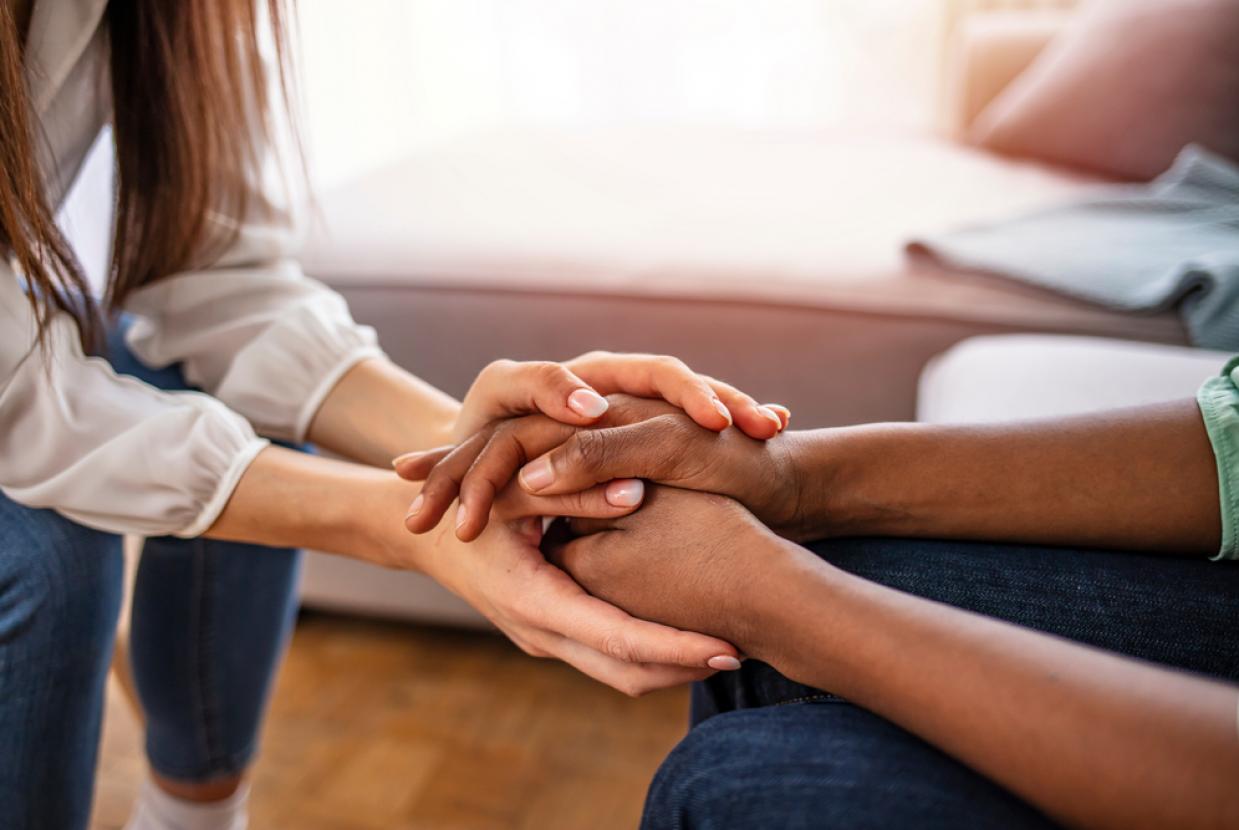Men's Health Week: Men & Mental Health
Mental Health / Men's HealthAs with many mental health statistics, it’s hard to know if the figures really represent what is happening. They can only tell us about mental health problems that have been reported – many cases may go undiagnosed. This may be especially true when it comes to men’s mental health.
There are other signs that might give us a better picture of the state of men’s mental health:
- Three times as many men as women die by suicide.
- Men aged 40-49 have the highest suicide rates in the UK.
- Men report lower levels of life satisfaction than women according to the Government’s national wellbeing survey.
- Men are less likely to access psychological therapies than women: only 36% of referrals to NHS talking therapies are for men.
In addition, men are far more likely than women to go missing, sleep rough, become dependent on alcohol and use drugs frequently.
While all this can paint a gloomy picture, there is help and support available if you’re worried about your own or someone else’s mental health – see below.
Why don’t men talk about mental health?
Society's expectations and traditional gender roles play a role in why men are less likely to discuss or seek help for their mental health problems. We know that gender stereotypes about women – the idea they should behave or look a certain way, for example – can be damaging to them. But it’s important to understand that men can be damaged by stereotypes and expectations too.
Men are often expected to be the breadwinners and to be strong, dominant and in control. While these aren’t inherently bad things, they can make it harder for men to reach out for help and open up.
Some research also suggests that men who can’t speak openly about their emotions may be less able to recognise symptoms of mental health problems in themselves, and less likely to reach out for support.
Men may also be more likely to use potentially harmful coping methods such as drugs or alcohol and less likely to talk to family or friends about their mental health. However, research suggests men will access help that meets their preferences and is easy to access, meaningful and engaging. For example, Men's Sheds provides community spaces for men to connect and chat, often over practical activities.
Is depression different for men?
While there isn’t a different sort of ‘male depression’, some symptoms are more common in men than women. These include irritability, sudden anger, increased loss of control, risk-taking and aggression.
Men may also be more likely to use alcohol and drugs to cope with their depression rather than talking about it. They may use escapist behaviour too, such as throwing themselves into their work. If you're experiencing depression, there is help available.
Suicide and men
In 2017, nearly 6000 suicides were recorded in Great Britain. Of these, 75% were men. Suicide is the largest cause of death for men under 50.
Higher rates of suicide are also found in minority communities including gay men, war veterans, men from BAME backgrounds, and those with low incomes. Less well-off middle-aged men are particularly likely to die by suicide.
What can I do if I’m worried about my mental health?
Making simple changes such as talking about your feelings, keeping active and eating well can help you feel better.
If you’re concerned you’re developing a mental health problem, talk to your GP. It can be daunting, but most people find that speaking to their GP and getting help and support can make a big difference to their lives.
If you're in distress and need immediate help or are feeling like ending your life, please call 999 or go to A&E and ask for the contact of the nearest crisis resolution team. These are teams of mental health care professionals who work with people in severe distress.
I’m worried about someone’s mental health. How can I help them?
If you’re concerned about a friend or relative, there are things you can do to help them.
Let them know you’re there to listen to them without judgement. Someone who is experiencing mental health problems may find it hard to reach out, so try to keep in touch. A text message or a phone call could make a big difference.
Find out about local services such as talking therapy or support groups. See if there are any specifically for men if you think they’d prefer that.
Help them to get help. Reassure them it’s okay to ask for help, and that support is out there. You could help them contact their GP or accompany them to their appointment if they want you to.
Take care of yourself. Looking after someone else can be hard, so make sure you consider your wellbeing too.
Content sourced from the Mental Health Foundation (mentalhealth.org.uk). More information on Men’s Health can be found on our site by clicking here.







































































































































